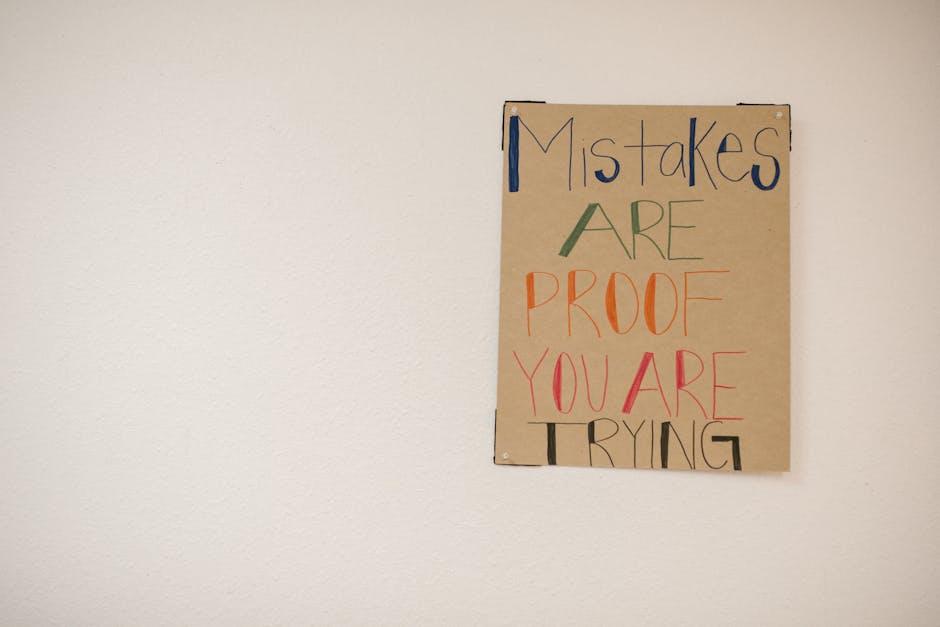In a world where self-doubt can easily overshadow our true potential, learning to trust yourself is a transformative journey that can unlock a reservoir of inner strength and confidence. This article will guide you through practical steps to build self-assurance by fostering a deep trust in your own instincts and abilities. By embracing this journey, you will not only enhance your decision-making skills but also cultivate a resilient mindset that propels you forward in both personal and professional arenas. Get ready to embark on a path to self-trust, where every step you take is rooted in confidence and conviction.
Understanding the Foundations of Self-Trust
To cultivate a deep sense of self-trust, it is crucial to recognize and embrace your inner voice. This means tuning into your intuition and allowing it to guide your decisions. Often, external influences can cloud our judgment, making us second-guess ourselves. By prioritizing your instincts, you build a foundation of confidence that is unwavering. Start by reflecting on past experiences where trusting yourself led to positive outcomes. Acknowledge these moments as evidence of your capability and wisdom.
- Listen actively: Pay attention to your thoughts and feelings without judgment.
- Set boundaries: Learn to say no to things that don’t align with your values.
- Reflect regularly: Take time to journal or meditate on your decisions and their impacts.
In addition, cultivating self-compassion is vital. Understand that making mistakes is part of the human experience and an opportunity for growth. Instead of criticizing yourself for errors, view them as stepping stones toward greater self-trust. Celebrate small victories and learn from setbacks, reinforcing the belief that you are competent and deserving of trust. By nurturing these foundational elements, you’ll find that confidence naturally follows.

Developing a Self-Reflection Practice for Confidence Building
Incorporating self-reflection into your routine can significantly enhance your confidence by fostering a deeper trust in yourself. The key is to engage in this practice consistently and with intention. Begin by setting aside a dedicated time each day, even if it’s just ten minutes, to pause and reflect. Use this time to consider the day’s events, your reactions, and your feelings. Ask yourself questions like:
- What did I do well today? Acknowledging your achievements, no matter how small, reinforces a positive self-image.
- How did I handle challenges? Reflecting on your problem-solving skills helps you recognize your capabilities.
- What can I improve tomorrow? Identifying areas for growth is crucial, but remember to be kind to yourself in this process.
Document your thoughts in a journal or digital note-taking app. This practice not only helps solidify your insights but also creates a valuable resource you can revisit. Over time, these reflections become a testament to your growth, serving as a powerful reminder of your journey towards increased confidence and self-trust.

Embracing Mistakes as Stepping Stones to Self-Assurance
It’s a common misconception that mistakes are setbacks; instead, they are the hidden architects of our personal growth and self-assurance. By embracing mistakes, we allow ourselves the freedom to explore and learn, turning potential failures into powerful lessons. Here’s how you can leverage your mistakes as tools for building confidence:
- Reframe Your Perspective: Shift your mindset from seeing mistakes as failures to viewing them as opportunities for growth. This change in perspective can reduce the fear of making mistakes, allowing you to take more calculated risks.
- Analyze and Reflect: Spend time understanding what went wrong and why. Use these insights to make better decisions in the future. Reflection turns your experiences into wisdom, bolstering your confidence in handling similar situations.
- Celebrate Small Wins: Acknowledge the progress made through each mistake. Recognizing even the smallest victories reinforces your ability to overcome challenges and enhances your trust in yourself.
- Practice Self-Compassion: Treat yourself with kindness when errors occur. Accept that mistakes are part of the human experience, and remind yourself that they do not define your worth or abilities.
By treating mistakes as stepping stones rather than stumbling blocks, you cultivate an environment where confidence can flourish, empowering you to trust yourself more deeply in every endeavor.
Creating a Personal Action Plan to Strengthen Self-Trust
Developing a robust personal action plan is pivotal in fortifying self-trust. Begin by identifying your core values and beliefs. Understanding what matters most to you serves as a foundation for decision-making. Reflect on past experiences where your intuition guided you effectively. Use these instances as a reference point for future choices. Journaling can be an excellent tool to document these reflections and track your growth over time.
- Set Clear Goals: Define specific, achievable objectives that align with your values.
- Embrace Mistakes: Accept that errors are part of the learning process and an opportunity for growth.
- Practice Self-Compassion: Be kind to yourself and recognize that self-trust develops over time.
- Regular Self-Assessment: Periodically evaluate your progress and adjust your plan as needed.
Incorporate daily affirmations and positive self-talk into your routine to reinforce your commitment to self-trust. Remember, building this trust is a journey, not a destination. By consistently adhering to your personal action plan, you’ll gradually see an increase in your confidence and decision-making prowess.




